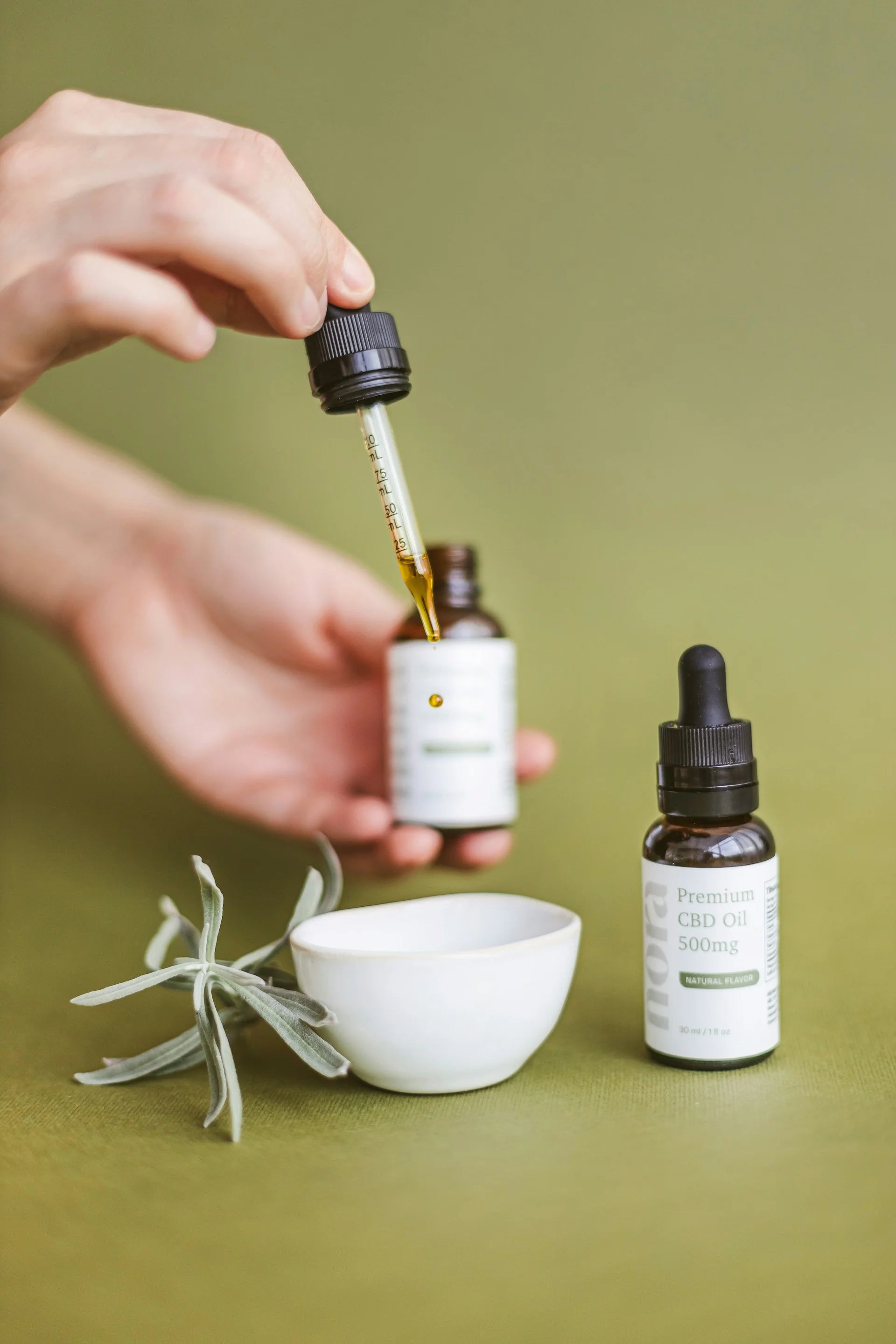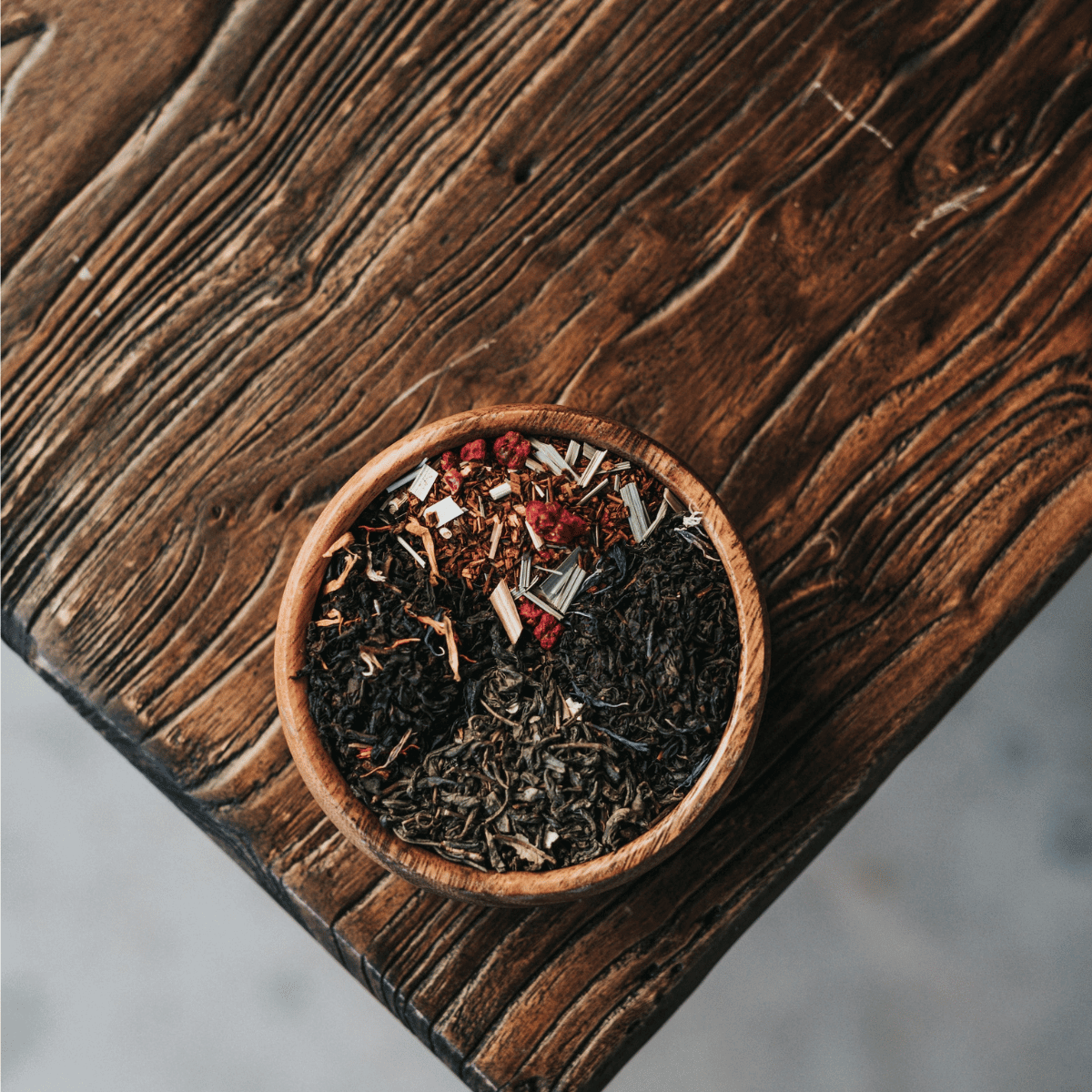Passionflower is a great smokable herb traditionally used to treat anxiety. This smokable herb is now commonly used as a nicotine-free tobacco alternative and an ingredient in herbal smoking blends. Smoking Passionflower is best enjoyed mixed in small quantities with your favorite legal herb in curated rolling fillers.
Passionflower and its extracts has long been used by naturopaths for its calming effect as a treatment for insomnia, stress, and attention deficit-hyperactivity disorder. No formal scientific study yet confirms the effects of passionflower on the human body as a smokable herb, contrary to the benefits of cannabis for example, which have been rigorously proven beyond doubt.
In this article, we will explore all the benefits that Passionflower has to offer and how it can help you stop smoking by being a smokable nicotine-free alternative to tobacco.
If you've already been reading about smokable herbs and are just looking to gather more information on smokable herbs then just keep reading below!
What Is Passionflower?
Passionflower, not to be mistaken with passion fruit, is a climbing vine native to the southeastern United States, Central, and South America that is a bit akin to tropical birds in the bold color schemes and incredibly diversified looks of the flower when it blooms.
There is a lot to say about the origins of Passionflower, but briefly said it is Spanish explorers that first learned about this great smokable herb from different Native Americans tribes in South America. Europeans have recognized the benefits of Passionflower and used different parts of the plant ever since in various natural healing treatments. The supposed benefits from ingesting this plant is a bit like a lite-version of benzodiazepines, with effects ranging from reducing anxiety, restlessness, and agitation, to inducing drowsiness.
There are about 500 known species of Passionflower (Passiflora) and some studies also suggest that some of these species, for example Passiflora Incarnata, can be used for the edible juice either fresh or as a flavor additive for some processed foods and is extremely rich in flavonoids (Vitamin P). This smokable plant may also supposedly have different healthcare benefits depending on the part and species of the plant that is used.
What happens if you smoke Passionflower?
Passionflower may produce a range of calming and sleep-inducing effect of varying intensities, with numerous first-hand accounts from people that smoking too much Passionflower has effects ranging from inducing a high effect akin to marijuana up to hallucinations.
We could not find any information from the food and drug administration (FDA) or other regulatory bodies nor scientific studies supporting these claims. Many people with serotonin problems to this day still ingest or smoke Passionflower to treat their anxiety and sleep disorders as a complement or replacement to their usual medicine and combining them in infusions or herbal teas with other relaxing dry herbs like Chamomile (Matricaria chamomilla or Chamaemelum nobile), lavender (Lavandula) or even catnip (Nepeta cataria).
What are the benefits of smoking passion flower?
Traditionally, Passionflower has been used to treat a number of ailments, ranging from anxiety to insomnia, but that was mostly being ingested in tinctures, teas, or herbal supplements. Again, we reiterate there is no formal scientific data that Passionflower has any tangible benefit for the human body when smoked in itself or in herbal blends, but also no significant health risks that have been identified either so the effects could just as well be placebos for all we know.

Photo by Nataliya Vaitkevich from Pexels
We do want to specify that ingesting or smoking any type of dry herb should never be done without consulting a doctor, especially when pregnant or breastfeeding or with any type of pre-condition.
Below are some of the traditional uses and benefits of this herb that we were able to gather through various information sources :
Smoking Passionflower for anxiety
Even though there’s hardly any health-specific evidence, some pieces of research suggest that passion flower as a smokable herb can help relieve anxiety symptoms. Its anxiolytic properties can induce sedative and calming effects, as shown in a study conducted on mice. As per several empirical examinations, passionflower can improve memory and decrease signs of anxiety by interacting with GABA levels. However, conclusions concerning the degree to which the flower works may vary from one research to another and there is not yet conclusive evidence.
Multiple naturopathy enthusiasts recommend that this is one of the ideal herbs to smoke for anxiety, although no tangible scientific data yet points that this is true. In addition, it can also be incorporated as part of a specified diet or as an add-on to supplement an ongoing treatment.
Smoking Passionflower for sleep
It is quintessential for the mind to stay in control to induce sleep-like effects. The brain’s gamma-aminobutyric acid regulation plays an integral role in relieving insomnia. Some evidence states that the passionflower might have an effect on serotonin and can help people sleep faster. Another 2017 study proved that the plant could positively impact sleep patterns, inducing increased deep sleep and reduced REM sleep. In simple terms, rats fell asleep a lot quicker with passionflower for some reason.
Passionflower can help reduce the time taken to fall asleep. Consequently, it increases the entire sleep duration and puts your brain at rest. Nevertheless, identifying side effects and determining the effectiveness in human beings require further investigation.
Other potential health benefits of passionflower : anti-inflammatory
Passionflower comprises anti-inflammatory properties, as indicated by several findings. In addition, one of the studies shows that P. foetida had anti-inflammatory and pain-relieving effects. Moreover, both ethanol and leaf extracts showed considerable anti-inflammatory effects and pain reduction.
According to researchers, passionflower extracts combined with clonidine are as effective as clonidine plus placebo when treating withdrawal symptoms. Moreover, passionflower, used along with hawthorn, can enhance exercise capacity in people with Congestive Heart Failure. While several beliefs say that such effects can be a product of hawthorn, further research is necessary.
Finally, some aerial parts of Passiflora Incarnata l have been studied for their anticonvulsant effects.
What are the side effects of Passionflower?

Photo by Polina Tankilevitch from Pexels
Reported side effects from ingesting or smoking Passionflower range from drowsiness, to a body high, even up to hallucinations. While these side effects can seem grave, we do want to specify that these are first hand accounts and that there exists over 500 species so the variables in play are very hard to reach a formal conclusion.
Dosages of Passionflower
Although Passionflower is a natural product, the dosage still needs to be determined carefully by considering the health condition of the user including their age and overall health history. As previously stated, some people smoking passionflower reported a range of effects that could be dangerous or simply unenjoyable for smoke recreational smokers, so we would advise to always consult a doctor before ingesting or smoking anything, even if the effects of passionflower could be attributed to a placebo effect.

Photo from IStock
Again, none of the supposed benefits of smoking Passionflower in herbal smoking blends or herbal cigarettes has been proven to contribute anything to the body, so these advantages are relative to ingesting the Passionflower based product in some form or another.
Standard adult dosage ranges from other herbal products made from passionflower that we have found on the market are detailed below:
- 0.75 to 6.5 g daily of the plant’s dried aerial parts, or composed like an infusion.
- 1.5 to 3.5 mL daily of 1:1 liquid extracts.
- 3.5 to 6.5 mL daily of a capsule/tablet form.
- 1.5 to 6 mL daily of a 1:8 passionflower tincture
Conclusion - What is the best way to smoke passion flower?
Passionflower as a smokable herb is of course a natural tobacco alternative to stop smoking. Smoking Passionflower is sure to provide that extra bit of help on the wallet and the dependence level to those who decide to use it as an alternative from the typical expensive legal herbs and tobacco.
As part of your switch from smoking pure Green or smoking tobacco to including herbal smoking blends in your next spliff, you may find that smoking Damiana, smoking Thyme, smoking Uva Ursi or smoking Raspberry Leaf may also suit you as base smokable herbs. You could also be interested in learning more about dry herbs vaporizers.
*This article is not to be interpreted as a statement of any form by Spliff but merely a compendium of information compiled from other sources. These statements have not been evaluated by Health Canada, FDA or any other regulatory body. Consult your doctor before ingesting or smoking any herbal product.*
Wanna learn more about Passionflower? Browse our sources below!
Passiflora. (2021, January 25). Wikipedia. https://en.wikipedia.org/wiki/Passiflora
Passiflora incarnata. (2020, May 1). Wikipedia. https://en.wikipedia.org/wiki/Passiflora_incarnata
Wikipedia Contributors. (2019, April 23). Flavonoid. Wikipedia; Wikimedia Foundation. https://en.wikipedia.org/wiki/Flavonoid
Wikipedia Contributors. (2019, December 23). Matricaria chamomilla. Wikipedia; Wikimedia Foundation. https://en.wikipedia.org/wiki/Matricaria_chamomilla
Chamaemelum nobile. (2021, October 25). Wikipedia. https://en.wikipedia.org/wiki/Chamaemelum_nobile
Wikipedia Contributors. (2019, November 14). Lavandula. Wikipedia; Wikimedia Foundation. https://en.wikipedia.org/wiki/Lavandula
Wikipedia Contributors. (2019, May 1). Catnip. Wikipedia; Wikimedia Foundation. https://en.wikipedia.org/wiki/Catnip
Kim, M., Lim, H.-S., Lee, H.-H., & Kim, T.-H. (2017). Role Identification of Passiflora Incarnata Linnaeus: A Mini Review. Journal of Menopausal Medicine, 23(3), 156. https://doi.org/10.6118/jmm.2017.23.3.156
Janda, K., Wojtkowska, K., Jakubczyk, K., Antoniewicz, J., & Skonieczna-Żydecka, K. (2020). Passiflora incarnata in Neuropsychiatric Disorders—A Systematic Review. Nutrients, 12(12), 3894. https://doi.org/10.3390/nu12123894
Toda, K., Hitoe, S., Takeda, S., Shimizu, N., & Shimoda, H. (2017). Passionflower Extract Induces High-amplitude Rhythms without Phase Shifts in the Expression of Several Circadian Clock Genes in Vitro and in Vivo. International Journal of Biomedical Science : IJBS, 13(2), 84–92. https://www.ncbi.nlm.nih.gov/pmc/articles/PMC5542920/
Park, J.-W., Kwon, O.-K., Ryu, H., Paik, J.-H., Paryanto, I., Yuniato, P., Choi, S., Oh, S.-R., & Ahn, K.-S. (2018). Anti-inflammatory effects of Passiflora foetida L. in LPS-stimulated RAW264.7 macrophages. International Journal of Molecular Medicine. https://doi.org/10.3892/ijmm.2018.3559
Nassiri-Asl, M., Shariati-Rad, S., & Zamansoltani, F. (2007). Anticonvulsant effects of aerial parts of Passiflora incarnata extract in mice: involvement of benzodiazepine and opioid receptors. BMC Complementary and Alternative Medicine, 7(1). https://doi.org/10.1186/1472-6882-7-26







Leave a comment
All comments are moderated before being published.
This site is protected by reCAPTCHA and the Google Privacy Policy and Terms of Service apply.